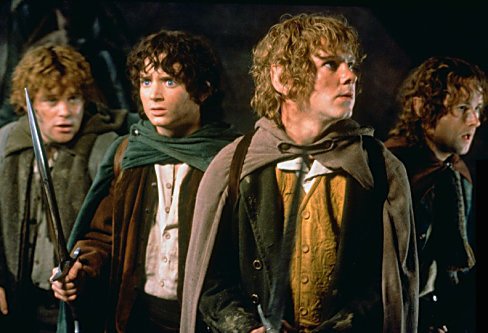Global Warming Could Make Us Hobbit-Size

Get the world’s most fascinating discoveries delivered straight to your inbox.
You are now subscribed
Your newsletter sign-up was successful
Want to add more newsletters?
Join the club
Get full access to premium articles, exclusive features and a growing list of member rewards.
Global warming could shrink humans down to the size of hobbits, those lovable residents of J.R.R. Tolkien's fantasy world, Middle Earth.
Fossil evidence shows that during past periods of natural global warming, many animals, from horses to gophers to diatoms, shrunk. For example, a warm spell that set in about 56 million years called the Paleocene-Eocene Thermal Maximum (PETM) halved the size of many invertebrates, and horses during the period were the size of cats.
The PETM caused about as much warming as is projected to occur this century due to greenhouse gas emissions. If humans adapt to the impending temperature rise in a similar manner as ancient horses, we'll wind up just a few feet tall. In the prologue to "Lord of the Rings", Tolkien listed hobbits' average height as 3 feet 6 inches.
For cold-blooded creatures — most of the animal life on Earth — the size reduction at higher temperatures happens because warmth speeds up the animals' metabolism. Consequently, they must either take in more food in order to maintain the same body size, or adapt to the environmental change by shrinking. Warm-blooded organisms, such as mammals, also tend to be smaller-bodied in warm regions and larger-bodied in cold regions, possibly because bulkiness helps conserve body heat.
During the PETM, a massive release of carbon into Earth's atmosphere from the oceans increased the average global temperature 10 degrees Fahrenheit (5.5 degrees Celsius) over the course of 170,000 years. If projections are correct, modern temperatures could reach PETM levels within a single century. [10 Species Our Population Explosion Will Likely Kill Off ]
"Continued global warming is likely to favor smaller individuals, and we predict that organism size will continue to decrease over the century," Jennifer Sheridan and David Bickford of the National University of Singapore wrote in a recent article in the journal Nature Climate Change.
However, in the face of such rapid warming, many of Earth's species may not be able to downsize quickly enough. According to Jonathan Bloch, a paleontologist at the University of Florida who recently co-authored a study on the tiny horses of the PETM era, human-caused global warming might be setting in too fast this time around for many species to adapt. "While our study provides a measure of possible response to global warming — that is, getting smaller — in a sense that is the best-case scenario," Bloch told LiveScience, Life's Little Mysteries' partner site.
Get the world’s most fascinating discoveries delivered straight to your inbox.
All those who lament the possibly impending height reduction ought to keep in mind that shrunken stature is a far cry better than no stature at all.
Follow Natalie Wolchover on Twitter @nattyover. Follow Life's Little Mysteries on Twitter @llmysteries, then join us on Facebook.
Natalie Wolchover was a staff writer for Live Science from 2010 to 2012 and is currently a senior physics writer and editor for Quanta Magazine. She holds a bachelor's degree in physics from Tufts University and has studied physics at the University of California, Berkeley. Along with the staff of Quanta, Wolchover won the 2022 Pulitzer Prize for explanatory writing for her work on the building of the James Webb Space Telescope. Her work has also appeared in the The Best American Science and Nature Writing and The Best Writing on Mathematics, Nature, The New Yorker and Popular Science. She was the 2016 winner of the Evert Clark/Seth Payne Award, an annual prize for young science journalists, as well as the winner of the 2017 Science Communication Award for the American Institute of Physics.
 Live Science Plus
Live Science Plus











